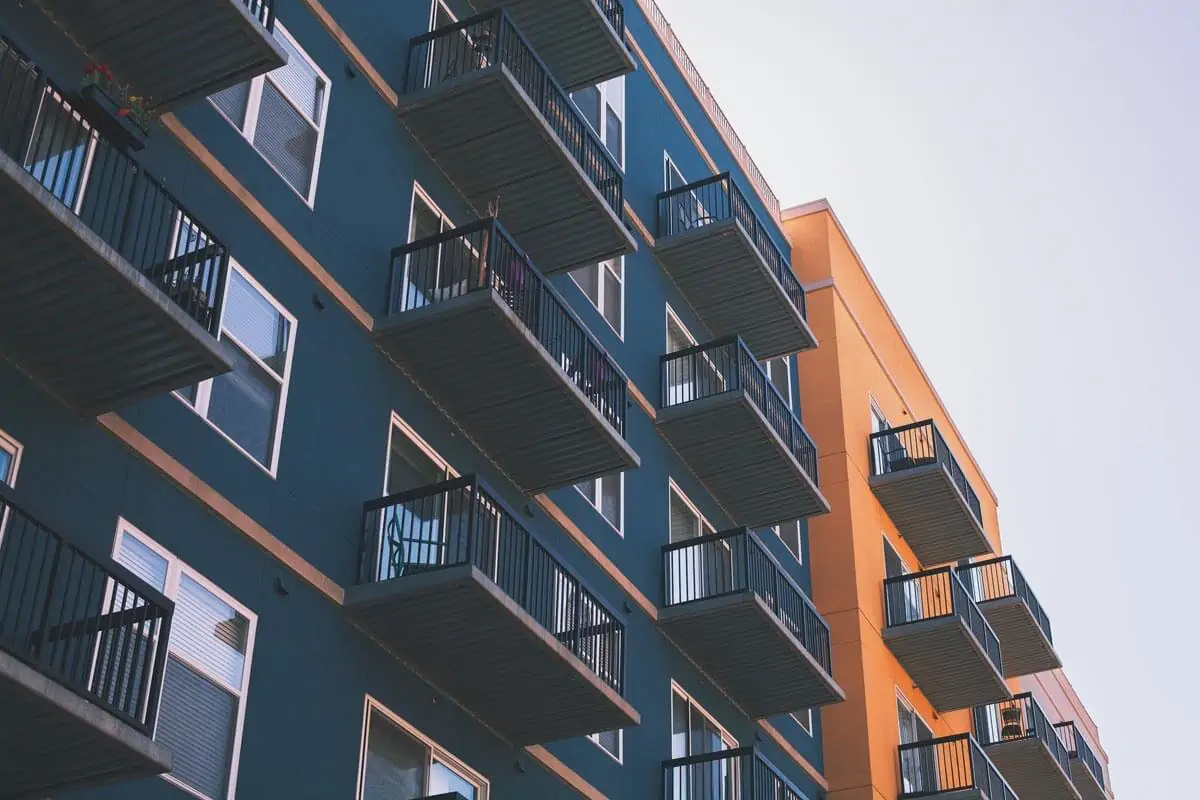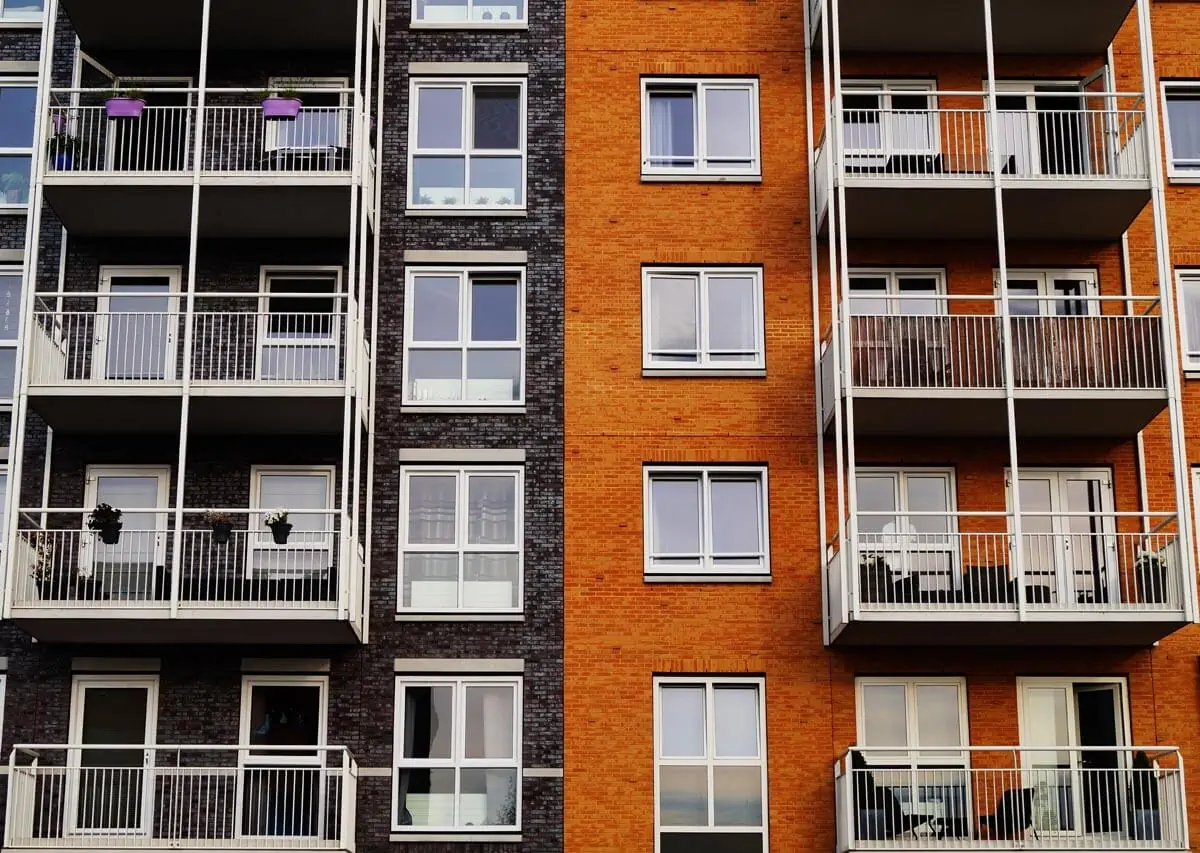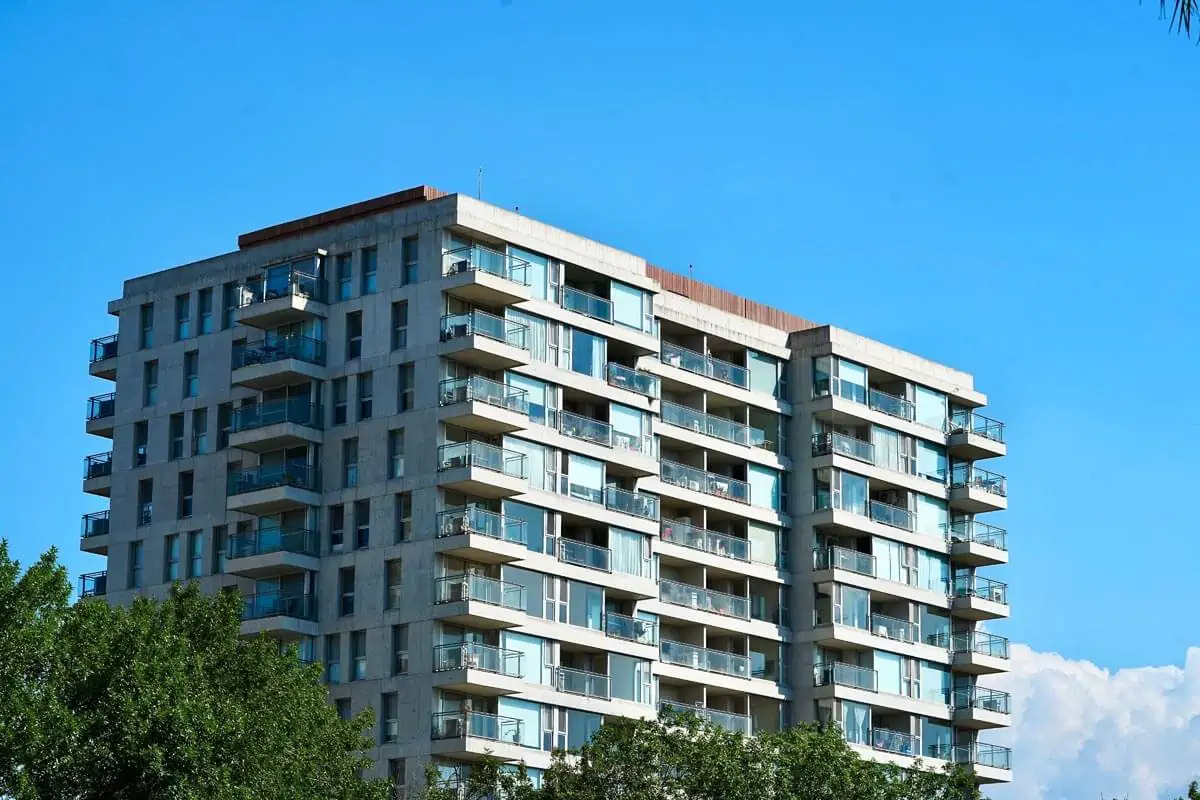Choosing Between Apartments and Condos: A Guide to Pre-selling and RFO Living
Are you considering living in an apartment or condominium property? As you embark on this exciting journey, it is crucial to understand the differences between these two types of living spaces and weigh the advantages and disadvantages of apartment and condo living in pre-selling and ready-for-occupancy (RFO) condo units.
This article by aims to guide you through your decision-making process. Together, we’ll explore the benefits, and evaluate your options so by the end of this article, you will finally be able to decide which housing type fits your needs and preferences.
Cracking the code of living: decoding apartment and condo units
 Photo courtesy of Tomasz Ganclerz via Pexels
Photo courtesy of Tomasz Ganclerz via Pexels
If you are living in the Metro, you obviously have a lot of housing options. Whether you are a first-time buyer, a young professional, or an empty nester, understanding the differences between apartments and condos is important when deciding on your next home. We will dive into the distinctive features of each, empowering you to make an informed decision. So, let us unlock the secrets of apartment and condo living, guiding you toward your perfect home selection with these key factors.
1. Cost of investment
When it comes to the cost of investment, apartments and condos are presenting contrasting options to consider. Apartments require a lower upfront investment so you usually just pay a security deposit and a monthly rent.
On the other hand, condos involve higher upfront costs as you are purchasing a property and assuming ownership. Also, it offers potential equity growth over time.
2. Maintenance
Maintenance is another major factor to ponder. Landlords usually add maintenance service fees on top of the rent fees so you won’t have to worry much about repairs. In condos, however, you may be required to handle your unit’s maintenance tasks by yourself.
3. Location
Location is key when selecting your ideal living space. Consider your distance to your office or school, as well as your transportation options for you to know how long it would take to reach your destination. Apartments are commonly found in urban areas with convenient access to city life, whereas condos can be located in both urban and suburban settings.
4. Amenities
Amenities can greatly enhance your living experience. Condos are known for having amenities like fitness centers, swimming pools, and communal spaces which offers a convenient condo owner’s experience. They also sometimes include exclusive features like private balconies or rooftop gardens, depending on the property developer.
As for apartments, they do not have much amenities since tenants usually just stay for a short-term period only and it is costly for a landlord to maintain it. Moreover, there are also instances when local zoning laws and regulations limit the kind of amenities that can be built within rental properties.
5. Restrictions
When deciding between an apartment and a condo, restrictions are also one of the things to consider. Both types of living spaces include regulations governing common area conduct, pet ownership, and wall decorations.
Moreover, landlords of apartments can limit what renters can do within their units like hanging wall decors or painting walls. While condo owners may be allowed to modify, paint, and decorate the interior of their units.
6. Rent vs. mortgage
Renting an apartment offers flexibility because its monthly rental cost cannot go over and beyond a 10 to 30-year mortgage on a home. On the other hand, condos offer the potential to build equity through homeownership, but they require mortgage payments and additional expenses like property taxes and HOA fees.
Pros of renting an apartment
 Photo courtesy of Brandon Griggs via Pexels
Photo courtesy of Brandon Griggs via Pexels
Renting an apartment comes with numerous advantages that make it an appealing option for you. From cheaper rent to short-term options, apartments offer a convenient and comfortable living experience. Let us explore the pros of renting an apartment and why it might be fit for you.
1. Cheaper rent
If you are looking for a cheaper housing alternative, renting an apartment might be excellent for you as it is usually less expensive than acquiring a mortgage. When you rent one, you will find that the upfront costs are considerably lower. Instead of a hefty payment, you will only need to provide a security deposit and at least a month’s deposit advance. This can be a significant relief to those who are seeking a more manageable financial commitment.
2. Safety and security
When it comes to safety and security, renting an apartment brings significant benefits. One of which is the presence of a robust security system that keeps outsiders at bay, providing peace of mind for residents. With the use of access cards and diligent guards stationed at each building entrance, it offers a heightened level of protection designed to keep you and your belongings safe.
3. A short-term option
Renting an apartment is a good short-term option because of its flexibility. Doing so allows you to adjust your living situation according to your circumstances. So if you are just staying for a short while or still hesitant about your future plans, this might be the best option for you.
Cons of renting an apartment
 Photo courtesy of George Becker via Pexels
Photo courtesy of George Becker via Pexels
While renting an apartment has its pros, it definitely comes with downsides as well. From lack of privacy to restriction and customization, it is pivotal to weigh the cons of apartment living before making a decision. Let us take a closer look at some factors to consider when renting an apartment.
1. Lack of privacy
Privacy is important. In an apartment complex, you are likely to live with nosy neighbors. They may tend to eavesdrop on conversations such as finances, family whereabouts, and other schedule-sensitive matters.
2. Limited parking space
One significant challenge that arises from limited parking lots is the difficulty in finding a space for your vehicle. You may find yourself competing with other residents for a suitable parking spot, especially during the peak hours which can also lead to frustration and wasted time.
Moreover, limited parking lots may require you to set parking arrangements like parking your vehicle on the street or nearby public parking areas.
3. Restrictions of customization
Having your own place sometimes means you want to personalize it. However, this can be quite an issue for apartment renters because most units have stylistic limitations wherein tenants are prevented from making significant alterations or modifications to the property. Painting walls, installing permanent fixtures, or making structural changes are just some of its examples. While these rules are in place to maintain the property’s overall appearance and functionality, such restrictions may prevent you from making the space feel like your own.
Pros of owning a condo
 Photo courtesy of Luis Quintero via Pexels
Photo courtesy of Luis Quintero via Pexels
Owning a condo brings a wide variety of benefits which is why it’s extremely appealing to many potential homeowners. From ownership to resale and renting value appreciation, owning one offers a blend of convenience and investment potential. Let us discover the pros of owning and finding a condo and why it might be a perfect choice for you.
1. Ownership
When it comes to housing options, owning a condo offers a range of benefits that make it an ideal choice and one of its advantages is that it has a sense of ownership. Unlike renting, where you are essentially paying for temporary occupancy, owning a condo allows you to invest in a tangible asset. With each mortgage payment, you are building equity and working toward a long-term financial goal. The sense of ownership brings a level of security, knowing that you have a valuable asset that can appreciate in value over time.
2. Passive income
One way to generate passive income is by renting your unit out. As a condo owner, you have the option to lease your unit to tenants, whether on a long-term or short-term basis. By doing this, you can earn a steady income that can help offset the costs associated with ownership.
3. Minimal upkeep
One of the advantages of owning a condo is minimal upkeep. The responsibility for maintaining the common areas and external features of the building typically falls under the association. This means that tasks such as landscaping, exterior repairs, and maintenance of shared amenities are taken care of by service providers appointed by the association. As a condo owner, you can enjoy the convenience of having these tasks handled on your behalf which saves you time and effort.
4. Resale and renting value appreciation
Owning a condo provides the opportunity for resale and renting value appreciation. Gradually, well-kept condos in desirable locations tend to increase in value due to various factors namely market demand, neighborhood development, and overall property appreciation. This means that the condo has the potential to appreciate in value which can allow you to sell or charge for rent in the future at a higher price and potentially earn a profit.
Cons of owning a condo
 Photo courtesy of Immanuel Abednego via Pexels
Photo courtesy of Immanuel Abednego via Pexels
While owning a condo has its advantages, it is important to be aware of potential drawbacks as well. From price fluctuations to privacy concerns, it is essential to consider the cons of owning a condo before making a long-term commitment to it. Let us take a look at some of the factors to ponder when owning a condo.
1. Price fluctuations
One of the drawbacks of owning a condo is the possibility of price fluctuations in the market. The value of condos can rise or fall depending on various factors like economic conditions, housing supply and demand, changes in neighborhood desirability, and upgrading market trends. These fluctuations can impact the value of your condo, potentially resulting in a decrease in its market price.
2. Homeowners association dues
Condo owners are required to pay their homeowners association dues. These monthly dues are collected by the admin office to cover different expenses related to the maintenance, and management.
3. Privacy
Condo units are built in multi-unit complexes in which you share walls, ceilings, and floors with other residents so there’s probably not much of an extra space between you and your neighbors. It can result in reduced privacy compared to standalone homes. You may hear your neighbors’ conversations, footsteps, or other noises, which can be intrusive and impact your ability to enjoy a peaceful and quiet living environment.
Future-proof your home: Evaluating pre-selling and RFO condo units
 Photo courtesy of Agustin Muñiz via Pexels
Photo courtesy of Agustin Muñiz via Pexels
Now that we’ve discussed the pros and cons of renting an apartment or owning a condo unit, it’s time to weigh the advantages and disadvantages of getting a pre-selling or a ready-for-occupancy (RFO) condo unit.
As schools and businesses resume onsite work, there is a noticeable surge in demand for RFO and pre-selling condos. It is a perfect time to capitalize on this trend and secure promising returns on your investment. This year presents an opportune moment to finally purchase a condominium and unlock its potential for substantial gains.
Whether you are a first-time buyer or a seasoned investor, it is vital to conduct thorough research before making a real estate purchase. As you go along the way, a question arises: should you opt for an RFO condo or a pre-selling property? This decision holds important implications, making it imperative to weigh the pros and cons of each option carefully.
Without further ado, here is a table of comparison of both pre-selling and RFO condo units.
Comparison table: Pre-selling and RFO condos
| PRE-SELLING | RFO | |
|---|---|---|
| Cost consideration and payment terms | ✅ Lower buying price | ❌ Higher, stricter buying price |
| Timeframes for possession and occupancy | ❌ High risk of turnover delay
❌ Longer wait for construction |
✅ Minimal turnover delay risk
✅ No wait time before move-in |
| Customization and personalization options | ✅ Open for customization and changes | ❌ Limited for customization and changes |
| Developer reputation and track record | ✅ To research the developer’s reputation in terms of delivering projects on time and meeting quality standards | ✅ Focus shifts towards assessing the developer’s reputation in terms of construction quality, maintenance, and overall management of the property |
| Market trends and investment potential | ✅ Higher ROI from date of purchase | ❌ Lower ROI from date of purchase |
1. Cost consideration and payment terms
Pre-selling condos have lower buying prices compared to RFO since you are purchasing a condominium property before it is even fully built. Besides, developers are often generous with their discounts during the phase of construction.
As for RFO, you are buying a unit at the end of its construction period when the market value has already increased. Plus, RFO condos have shorter payment periods, whereas others might not be able to afford an RFO payment with such an inflexible payment period.
2. Timeframes for possession and occupancy
In terms of timeframes for possession and occupancy, pre-selling condos may require you to wait three to five years before you can use, lease, or market it. Also, there might be high risks of turnover delays if there are any setbacks experienced during construction, creating a gap between property purchase and the actual construction completion.
Yet, RFO condos can be utilized right away. Everything will be there for you as soon as the papers, requirements and payments are settled. You can start your condo life without waiting for a long period to move in.
3. Customization and personalization options
In pre-selling condos, you have the chance to work closely with the developer’s designated interior designers – and even your own – to choose from a range of flooring, paint colors, kitchen cabinets, and more. This level of customization allows you to create a living space that suits your style and preferences.
Meanwhile, RFO condos have more limited modification options and primarily focus on interior decoration and furniture arrangement. However, major changes to structural elements or design are prohibited since the construction is already finished.
4. Developer reputation and track record
When it comes to considering the developer’s reputation and track record, it is important to research the developer’s reputation in terms of delivering projects on time and meeting quality standards. Look for their track record in completing previous developments successfully, adhering to construction timelines, and delivering on promised amenities and features. Reading reviews, seeking recommendations, and checking their portfolio of past projects can provide valuable insights into their credibility.
On the contrary, for RFO condos, the focus shifts towards assessing the developer’s reputation in terms of construction quality, maintenance, and overall management of the property. Look for evidence of their commitment to upkeep and ongoing maintenance of the complex, ensuring that the building and common areas are well-maintained and meet expected standards.
5. Market trends and investment potential
Buying a pre-selling condo unit makes more sense in the long run as its market value will increase over time. This means that you will be reaping the reward of a higher ROI when you lease or market it.
In contrast, RFO condos often have a lower return on investment (ROI) from the date of purchase due to several factors. Firstly, the purchase price of RFO condos tends to include a premium for your immediate occupancy which can reduce potential gains. Additionally, the market value of the condo may have already reached its peak at the time of purchase, limiting the appreciation.
Key takeaways
Choosing what’s best for you is never an easy task but, wherever you may decide to live in, you will most likely enjoy the benefits of either renting an apartment or owning a condo, whichever.
So before we end, here are some of the key takeaways:
- Move-in with convenience. Both apartments and condos come with various amenities that add enormous value and convenience to your lifestyle. These will save you time and effort, allowing you to make the most of your free time.
- Create a sense of community. Renting an apartment or owning a condo provides an excellent opportunity to meet new people. You will have neighbors that are living close to you which makes it easier to develop a sense of community. Shared spaces and events organized by the apartment complex or condo units can further enhance this communal atmosphere.
- Enjoy simplified living. The benefit of apartments and condos lies in their ability to simplify your lifestyle. These living spaces attribute well-designed floor plans to maximize functionality and optimize space. You would not have to worry about extensive maintenance or cleaning a huge house. With fewer responsibilities, you can enjoy life and pursue your passions.
Are you interested to learn more about DMCI Homes and our communities? Visit our website’s articles here. You can also check out our Facebook page or download the DMCI Communities app on Google Play Store or App Store to stay connected and updated.




